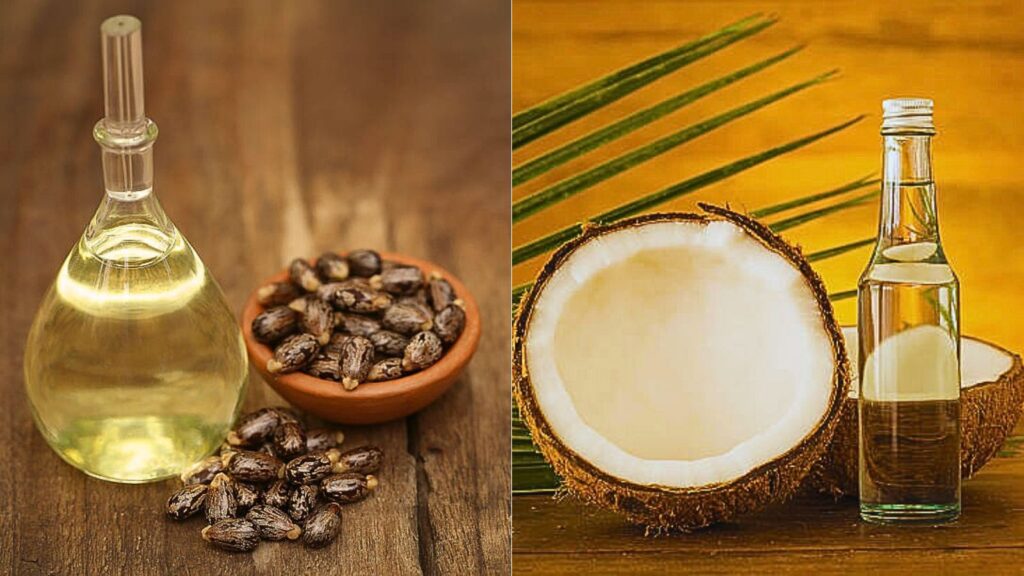Castor Oil vs Coconut Oil: Which Is Best for New Hair Growth?

Are you struggling with hair fall or worried about thinning hair? Castor oil and coconut oil remain top choices in natural hair care, valued for their nourishing abilities and potential to boost new hair growth. But which is truly better for encouraging fresh, healthy strands, castor oil or coconut oil? Let’s explore the benefits, science, and best practices to help you choose the right oil for your hair needs.
Castor Oil: The Growth Booster
Castor oil is celebrated for its antibacterial and antimicrobial properties, making it excellent for scalp health. It increases blood circulation to the scalp, which may promote hair growth and support stronger follicles. Castor oil is also highly effective in treating dry, irritated scalps and locking in moisture for added smoothness. Some evidence indicates that ricinoleic acid in castor oil might help prevent hair loss, though clinical proof for enhanced growth is still limited.
- Castor oil boosts blood flow in the scalp, supporting growth.
- Its moisturizing effect treats dryness and irritation.
- The thick consistency means castor oil should be mixed with other oils for easier application.
Coconut Oil: The Moisture Miracle
Coconut oil is a time-tested remedy passed down through generations, loved for its superb ability to hydrate, shine, and repair dry, rough hair. This oil is easily absorbed, making it perfect as a natural hair mask or daily antidote to frizz and lackluster strands. Lauric acid in coconut oil adds extra shine and helps reduce dandruff and treat flaky scalps.
- Coconut oil hydrates and softens dry hair.
- It adds shine and controls frizz for a sleek look.
- Its scalp-soothing qualities can combat dandruff and flakiness.
Which Is Better for New Hair Growth?
While both oils can aid hair growth, castor oil is generally considered more effective for triggering new growth due to its blood-flow boosting nature and thick, nourishing structure. On the other hand, coconut oil excels at moisturizing and protecting hair, making it an invaluable companion for dry or damaged strands. Many people find that blending castor oil with coconut oil delivers the best balance; coconut oil helps apply castor oil more evenly and enhances shine.
Important Tips Before Application
Not every oil suits every scalp. It’s vital to do a patch test before using either oil to prevent allergic or adverse reactions. Always choose the purest forms available for maximum benefit. If seeking significant regrowth, consider pairing both oils or consult a healthcare provider if you have persistent hair or scalp concerns.
Final Thoughts
For those experiencing hair fall or early hair loss, castor oil edges ahead as a growth stimulator, while coconut oil stands out for hydration and overall hair wellness. Combining both can harness the strengths of each, natural growth from castor and deep moisturization from coconut, for a potent addition to your hair care routine.
Disclaimer: This article is intended for information purposes only and is not a medical advice. The information provided in the article is gathered from what is available in public domain and is not an expert opinion. Always consult a qualified healthcare provider or dermatologist before starting any new hair care routine.









